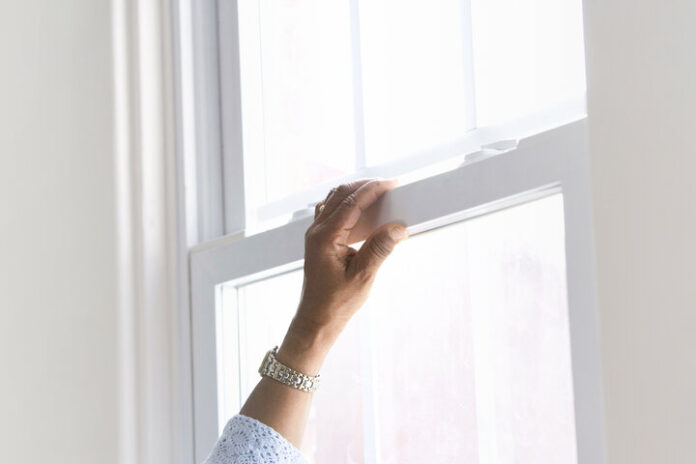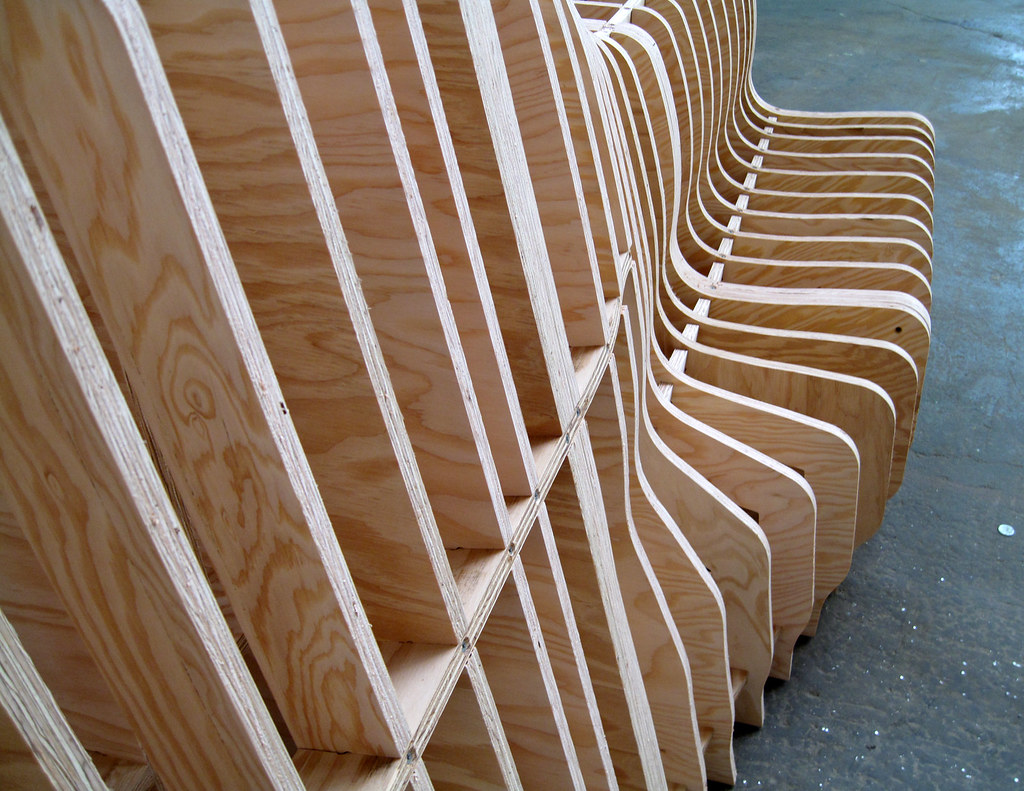
Your air conditioner’s ability to remove moisture effectively may be hindered by clogged drain lines or dirty air filters. Problems with air conditioning may lead to water leaks, including the following:
Condensate Drain Line Clog:
It often causes AC leaks. Dehumidifier moisture contains dirt and particulates. Condensate drain pipes that are not regularly cleaned risk becoming clogged over time. At some point, water will begin to accumulate within your unit, and it will begin to seep into your house via the drain pan.
Most contemporary air conditioners have a valve that closes automatically if the condensate line becomes blocked. It protects your house from being harmed by water. You must take action if this option is unavailable to your unit.
Drains must be Unclogged:
- After shutting off the unit, check if any water is left in the drain pan. Cleaning the drain pan will help prevent the growth of mould.
- Determine which drain pipe has been clogged and locate it. The next step is to clean the line using a wire brush. You may need a pump or a vacuum to get it unclogged. To guarantee that it is spotless, run very little water through it.
- Preventative measures include doing routine maintenance on the HVAC system. Bleach should be used once every six months to clean the line that drains condensate. It decreases the number of germs and moulds. The danger of rusting is increased by frequency.
Drainage Pans with Rust:
A drain pan is used to collect moisture that drips off of the evaporator coils or air handler of your air conditioner. The water flows out into the open air at this point. If the drain pan is rusted or fractured, the water won’t drain properly but will instead spill out. Air conditioners that are 15 years old or older have a problem with the drain rusting. Rust and corrosion in the drain pan might be the source of AC leakage.
Solution:
- Fill up the cracks in the drain pan. After the drain pan has been thoroughly cleaned, you should inspect it for any cracks using a flashlight and some water. Visit professional ac repair services the cracks using a sealant that is resistant to water, and then verify the effectiveness of the fix by pouring water over it once again.
- Drain pans that have rusted through should be replaced. The drain pan for your air conditioner has to be the appropriate size.
Disconnect Drain Line:
- Your air conditioner might leak if the drain pipes are not properly fastened. Poor installation, maintenance, or wear might remove the drain line.
- If a drain pipe is not closed, water might pool on the floor or leak through the ceiling if the pipe is not stopped. The leakage source depends on the AC unit location.
Solution:
- Re-establish the connection between the drain line and the HVAC support. To avoid getting into a scenario like this, you should always have repairs and instals done by a professional
Float Switch/Condensate Pump Failure:
- It may be difficult to drain water from your central HVAC unit if it is located in a basement or an attic far away. The condensate pump is responsible for pumping water out of the system.
- When the condensate reservoir reaches its maximum capacity, the float switch on the pump becomes engaged. The water will be drained off of your property by the condensate pump.
- Water will not exit the device if there is a problem with the condensate pump or the float switch. Your air conditioner will flood.
Solution:
- You can’t fix it. If necessary, repair or replace the pump that removes condensate.
Temperature:
The process of dehumidifying often results in condensation. An excessive amount of condensation can potentially cause air conditioning ducts or vents to leak water. Dripping water may ruin the insulation. Mould may grow in air ducts, which can lead to a decrease in the quality of the air within. Multiple causes induce condensation buildup:
- Warm air may condense on cold surfaces when air ducts lack insulation because it is possible for warm air to reach the surface. The same problem occurs when ductwork is routed through an attic that is either not insulated at all or is only partially insulated.
- Water can seep from air ducts if the ducts are clogged, the air filters are dirty, and the drain pump is clogged. Because blockages restrict air from flowing freely throughout your system, your ducts will be colder, which will increase the likelihood that you will sweat (condensation in your ducts)
- Condensation is caused by the humidity of the summer. There may be an increase in humidity if leaks and inadequate ventilation. Anywhere between 30 and 50 percent humidity is the best range for a house.
- The steps to take to get the ideal humidity levels indoors.
Solutions:
- Put insulation in the ducting. When ductwork is insulated, warm air will not be able to go through the cooler ducts. If your ductwork has insulation installed, examine it for damage and make any necessary visit to AC Repair San Diego. Insulate the ducts to prevent outside air from entering.
- If you have ductwork that goes through your attic, you should insulate it.
- To prevent the formation of condensation, hire a roofer, Top AC Repair San Diego, the leaking roof.
- Eliminating dirt and debris via routine AC maintenance helps reduce water leaks.
Evaporator Coils are Frozen:
If there is a leak of refrigerant or the airflow is restricted, the evaporator coils might freeze. It might lead to moisture buildup, drains overflowing, and water leaking.
Solution:
- Identify the cause of the problem if your air conditioner begins to freeze.
- Check for obstructions in the airflow at the following locations: air filters, return vents, ducts, fin coils, etc. Keeping them clean enhances airflow and prevents the AC from freezing up and developing leaks.
- If cleaning the filters in your air conditioner does not fix the problem, it may have too little refrigerant. The evaporator coils will freeze if there is not enough refrigerant. As it melts, your gadget is leaking fluid.
- A specialist in heating, ventilation and air conditioning (HVAC) must locate the leak, fix it, and then supply the refrigerant.
Filters that Collect Debris:
- Dirty air conditioner filters may cause evaporator coils to freeze and leak water.
- Filters improve airflow. They prevent the entry of contaminated air while allowing clean air through. Over time, filters may get clogged with particles and dust. Their obstruction is harmful to the quality of the air inside as well as your unit. It lessens the airflow in the HVAC system.
- Clogged filters block warm air. The evaporator coils get frozen due to the refrigerant’s inability to absorb heat.
- When they defrost, they might leak water into your home.
Solution:
- Gather the water that has been dripping first. Always keep the ground and the walls safe. After that, be sure to clean your filters. Before you replace the filters, make sure they are dry
- You should clean your air filter more often when the weather is hot, and the air conditioner is running. Every two weeks, cleaning and replacing should be done.
- Utilise a smart air conditioner controller whether you have a window, portable, or mini-split air conditioner. The Cielo Breez smart controller checks the state of the air filter’s cleanliness and alerts the user when it’s time to clean it.
Incorrect Installation of the Air Conditioner:
- If you recently installed your new air conditioner, you may wonder why it is already leaking water.
- It’s possible that an improper installation caused the issue. The air conditioning and drain pipes are disproportionately sized, which impedes the passage of water from the drain pan. Your unit leaks.
- Air conditioners that are not balanced properly may cause water damage to the house. If a window air conditioner is turned on its side, water drips inside, creating a messy situation.
Solutions:
- The centralised air conditioner has to be turned off. When walking on uneven terrain, you should use an AC pad.
- Tilt the front of the window air conditioner so that water drains outside rather than within.
- Installing a new system should be done by a trained technician.
Conclusion:
You now know why your air conditioner can be leaking and how to fix it. Most water leaks from air conditioners may be avoided with regular maintenance. While making adjustments to equipment both inside and outdoors, the Top AC Repair San Diego examines the status of critical components. Your home will remain more comfortable if you get your air conditioner serviced annually.
Author Bio:- Robert Wong
Robert is a marketing manager at EZ Eletric. He has an interest in writing articles related to HVAC installation, maintenance, and repairs. The HVAC system has made our life convenient regardless of the climatic changes. Read Robert’s articles to know step-by-step installation guide for ceiling fan, smoke detector, lighting and electrical appliances in California as well as how to repair them in case of malfunctioning or breakdown.

















